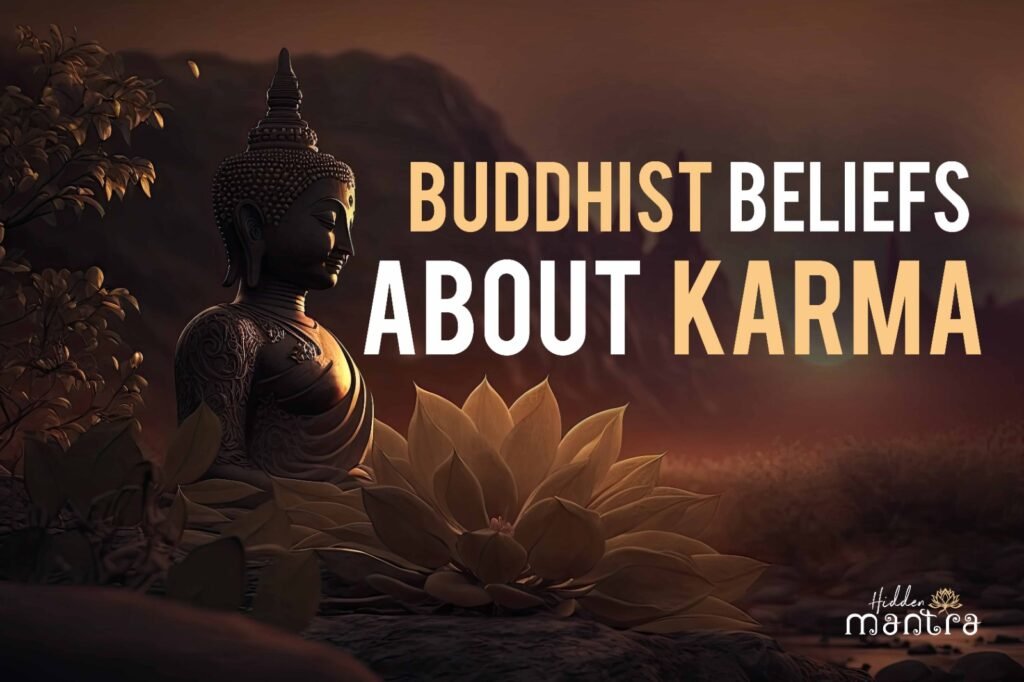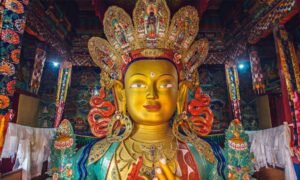Table of Contents
ToggleKarma is an ethical causation. The theory of Karma is one of the most essential doctrines in Buddhism. Buddhist beliefs about Karma is that past actions, good or bad, affect the present. Karma is familiar to everyone; it is the outcome of our behavior in certain situations. If we do good, ultimately good things will happen; if you do bad things to others, yeah, then Karma hits us one day.
What does Buddhism say about Karma?
In this world, we know everything happens for a particular reason. Buddhist belief in Karma is that we are solely responsible for our happiness and sorrow. We engineer our fate. We build our heaven and hell. Buddhists believe that the actions in our past life can follow us to our present life. Buddhists believe in the concept of rebirth, so if you did something negative in the past life, you will experience the result in your present life. Good Karma results in getting to heavenly realms, and lousy Karma makes you rebirth as an animal or have a difficult life in hell. In the context of Karma, the role of Buddhism and peace plays a huge role because it leads to mindful and compassionate actions. The Eightfold Path serves as a roadmap for individuals seeking to align their conduct with principles contributing to peace.
Is Buddhist Karma real?
Buddhist belief in Karma is that it is a natural process. It is not a rule imposed by external forces; it is a natural law for everyone. So when we consider Karma as a reason for all the good fortunes, it because you did good things in the past. Miserable plight happens due to the wrong actions you did in the past life; from this we can clearly understand one thing: we are responsible for our fate. Many people are unaware of this truth, which ultimately leads to suffering.
Buddhists strongly believe that some experiences and situations in our lives result from the previous life, but the most crucial factor is how we face those situations, which is not preplanned. Whether it’s past or present actions, it solely depends on one’s perceptions, mentality, moral attitude, and intellectual differences. The Five principles of Buddhism are closely linked to Karma as they serve as pledges to refrain from harmful actions, thus influencing one’s karmic consequences.
Four Types of Karma
Buddhists believe in four types of Karma.
- Sanchita karma, or accumulated Karma: It involves the Karma you inherited from your past life, so you may not be fully aware of this Karma. It can also refer to your total Karma.
- Prarabdha karma, or allotted Karma: It is a portion of Karma from your total accumulated Karma that you carry throughout your life. Your allotted Karma shapes the situations you face. You can work through your Karma by living out a portion each lifetime. This helps balance your actions and experiences.
- Agami karma, or future actionable Karma: It is defined as the Karma that’s created current actions, decisions, and choices that have consequences in this lifetime or future.
- Kriyamana karma, or present actionable Karma: It specifically addresses the spontaneous or immediate consequences of your actions. It highlights the connection between your actions and the immediate outcomes.
The Law of Cause and Effect in Buddhism
In Buddhism, the law of Karma is the principle of cause and effect. The concept of Karma holds great significance in Buddhism and is one of the fundamental principles outlined in the Four Noble Truths. As mentioned earlier, every action we take has its reactions or consequences. It can be positive or negative. Through this law, what is trying to convey is that everything around us is interconnected, and our actions affect the world around us.
Most people often misunderstand the law of Karma as a punishment for our actions. In reality, it is neither a form of punishment nor a reward for your actions. In simpler words, it is a law of cause and effect. It works on a simple logic: if you do good, you can generate positive Karma for yourself; if you are experiencing negative Karma, that because of a negative hand of yours.
The law of Karma is significant because it deals with not only the actions of this lifetime but also the actions of your previous lifetime. This is the primary reason some people are born with all the fortunes, and some are not. We can understand most of our past actions when we evaluate our current life state.
The law of Karma is forgiving. We already discussed that we are responsible for our fate, so if you want to create a good life for yourself, watch your actions.
Daily Life and Practical Applications
In Buddhism, the ultimate aim is to attain nirvana, freedom from the cycle of existence (samsara). Nirvana brings an end to suffering, delusion, and the cycle of birth and death, leading to profound inner peace through spiritual practice.
In Buddhism, Karma is the concept of future consequences based on the moral quality and intention of our actions. Karmic results are not immediate and cannot be said to ripen in the present.
One of the fundamental beliefs in Buddhism is the concept of rebirth, along with Karma and nirvana. The cycle of rebirth can only be broken by achieving nirvana through insight and overcoming craving.
Exploring yoga and other mindfulness practices can support your journey towards freedom and inner peace. Discover the profound teachings through thought-provoking Buddha quotes on Karma. These quotes provide a guiding light, offering deep insights into the impact of our actions and the laws of cause and effect.
Conclusion
The study of Buddhist principles on Karma offers a deep dive into the fundamental aspects of Buddhism, highlighting the influential impact of Karma on personal and community welfare. Based on Buddha’s philosophy on Karma, it underscores the dynamic connection between actions, outcomes, and inner harmony. Gain personal serenity and help create a peaceful world by embracing the principles of karma in Buddhism. Understand and apply this unique pathway to bring positivity and harmony to your life and the world around you. You have the power to make a difference! Visit our Hidden Mantra page for more such content.



















